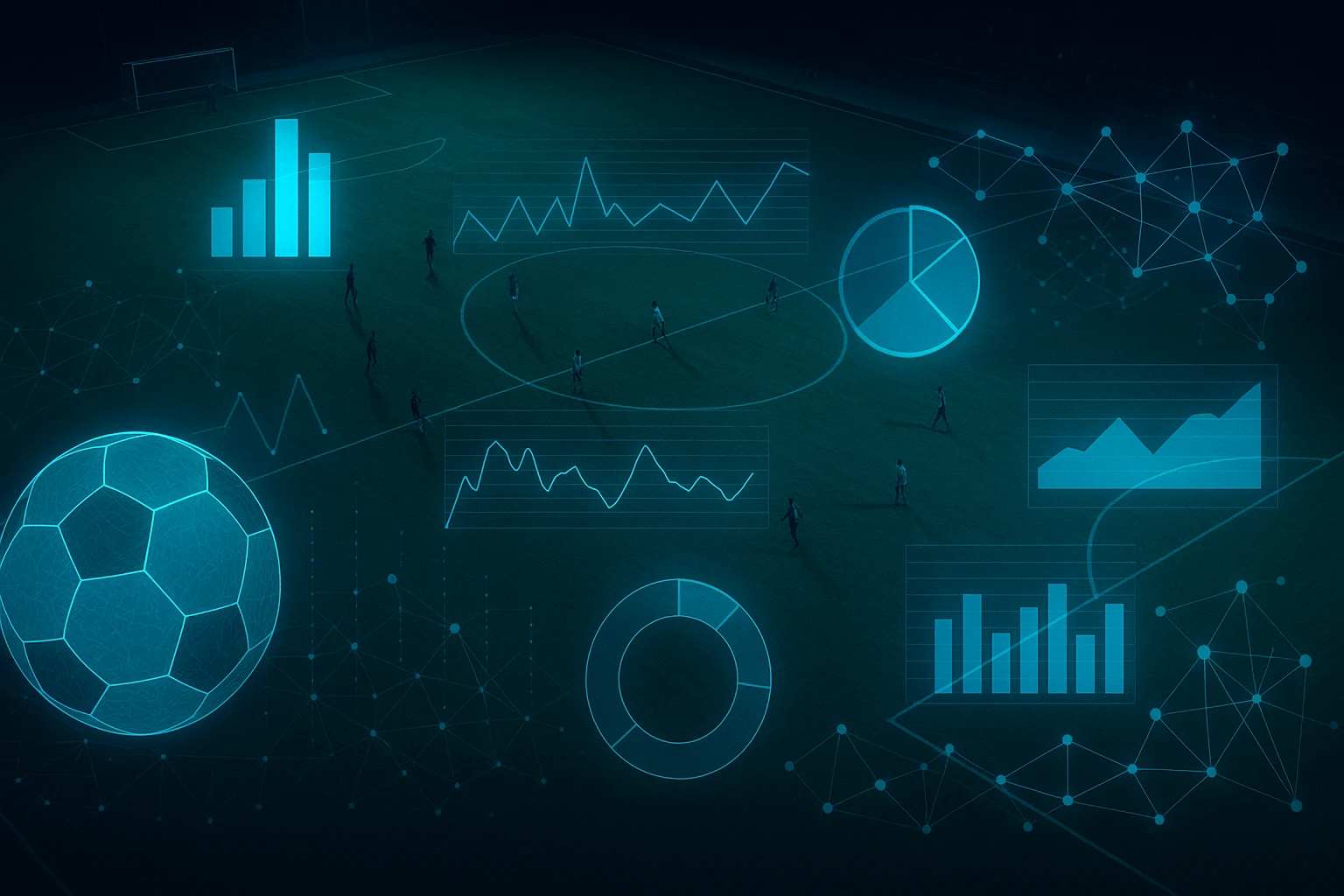
Football Matches Can Be Predicted Using AI?
For decades, football fans have tried to forecast match results — from friendly debates in pubs to pre-match studio predictions on television. But today, a new kind of analyst is entering the conversation: artificial intelligence.
AI is no longer science fiction. It’s learning to detect hidden patterns, understand probabilities, and even anticipate results with growing accuracy. The big question is: can football really be predicted using AI?
Why Football Is So Hard to Predict
Football’s beauty lies in its unpredictability. It’s a sport where one deflection, red card, or moment of brilliance can change everything. That same unpredictability, though, is what makes forecasting so challenging.
Every match depends on countless variables: player form, tactics, weather, fatigue, and motivation. Traditional statistics — possession, shots on target, or even expected goals — tell part of the story but can’t fully explain how those elements interact.
Predicting football is like trying to model chaos. And yet, that’s exactly the type of challenge that artificial intelligence was built for.
How Artificial Intelligence Understands the Game
AI doesn’t rely on human intuition; it relies on patterns. Using machine learning, algorithms can process years of football data — thousands of matches — to identify relationships that people often overlook.
For example, a well-trained system might notice that teams who maintain higher passing accuracy in the final third against low-block defenses tend to win more often, or that fatigue affects attacking output after a certain number of minutes.
These aren’t assumptions — they’re correlations discovered by processing massive datasets at a scale far beyond human capability. The more data the AI studies, the more it learns, improving its predictions over time.
The Rise of AI-Driven Football Predictions
Over the past few years, artificial intelligence has revolutionized football forecasting. What started as basic statistical modeling has evolved into self-learning systems capable of generating highly accurate match predictions.
A new habit is people checking Football AI Predictions by NerdyTips — a platform that uses AI-driven algorithms to forecast match outcomes across global leagues. By analyzing extensive historical data, form trends, and key contextual metrics, it produces predictions grounded in probability rather than speculation.
NerdyTips doesn’t focus on tactical breakdowns or scouting reports; instead, it applies machine learning to understand which measurable factors historically influence match results. It’s a modern demonstration of how technology can interpret football’s rhythm while respecting its unpredictability.
While no system can guarantee perfection — and that’s part of the sport’s charm — AI prediction models like this one are helping bridge the gap between intuition and evidence.
How AI Predictions Work
AI football prediction systems generally follow a structured process:
-
Data Gathering: Collecting data from previous matches, including goals, cards, home/away performance, and seasonal form.
-
Pattern Recognition: Identifying how combinations of factors — such as recent form and goal averages — correlate with specific outcomes.
-
Model Training: Teaching the algorithm to weigh these variables based on accuracy from past predictions.
-
Forecasting: Producing probabilities for each possible result (home win, draw, away win) using updated data before every matchday.
The AI doesn’t “know” who will win; it calculates how often similar situations have produced particular results. That’s what makes its output measurable and explainable.
Why AI Is Outperforming Traditional Predictions
AI’s advantage lies in scale and consistency. While human analysts focus on recent form or subjective impressions, machine learning can study patterns across entire seasons and leagues without bias.
An AI system might recognize, for instance, that teams with aggressive pressing styles tend to struggle in away fixtures on smaller pitches, or that certain formations perform better in rainy conditions. These insights often go unnoticed by fans and pundits but appear clearly in data.
The real difference is that AI isn’t guessing — it’s calculating probabilities. And those probabilities, refined over millions of match examples, can come remarkably close to real-world outcomes.
The Human Element Still Matters
Even with all this computing power, football remains a human game. Passion, confidence, and emotion still influence every kick of the ball. AI can model data, but it can’t capture the weight of a last-minute goal or the energy of a roaring home crowd.
That’s why AI predictions aren’t meant to replace human judgment — they’re meant to enhance it. Coaches, analysts, and fans can use AI-generated insights as one piece of a larger puzzle that still depends on the unpredictable beauty of the sport.
Football will always have its surprises — and that’s exactly why we love it.
When AI Gets It Wrong (and Why That’s Okay)
AI models, no matter how advanced, occasionally get it wrong — often for the same reason we get football wrong ourselves. A red card in the 10th minute, a freak deflection, or a moment of individual brilliance can change everything.
These exceptions remind us that while data can explain trends, it can’t control luck. The best prediction systems embrace that limitation and aim for consistent accuracy over time, not perfection in every match.
The Future of Football Prediction
As technology evolves, AI’s role in football will only grow stronger. Future models will integrate more real-time data — from player tracking systems, fatigue sensors, and even emotional metrics gathered through video analysis.
Soon, we might see AI generating live win probabilities during matches, updating dynamically as momentum shifts. This will redefine how broadcasters, fans, and analysts experience the game — blending data with storytelling like never before.
AI isn’t changing the essence of football; it’s helping us understand it on a deeper level.
Football’s Balance Between Logic and Emotion
So, can football matches really be predicted using AI?
The answer is yes — to a degree that was once unimaginable.
Artificial intelligence can identify probabilities, recognize tactical trends, and forecast outcomes with surprising accuracy. But football still belongs to the players, the fans, and the moments no algorithm could ever see coming.
AI gives us the logic behind the game — but emotion will always write the headlines.